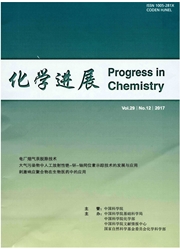

 中文摘要:
中文摘要:
世界范围能源短缺和环境恶化的双重压力促使可再生生物质资源的能源化利用成为当前研究的一个重要方向。生物质种类多样,但考虑到粮食安全等因素,其中油脂和木质纤维素适合替代化石资源用于制备液体燃料。本文概述了油脂和木质纤维素通过不同催化转化途径制备液体燃料的一些研究进展。油脂可以通过催化热裂解、加氢和酯交换方法制备生物液体燃料,而木质纤维素制备液体燃料的可行途径包括气化-费托合成、液化-精炼和经历平台化合物的选择性合成。在介绍这些催化途径的同时,特别讨论了其中所使用的催化剂和工艺等方面的研究进展,分析了存在的问题和可能的解决措施,以期能为生物质能源化利用的研究提供参考。
 英文摘要:
英文摘要:
Dual pressures currently arising from energy shortage and environmental degradation worldwide make it critically important to utilize renewable biomass resources for energy. But due to the requirement for the safety of food and feed, triglyceride feedstocks (currently derived mainly from vegetable oils and animal fats) and lignocellulose among the various kinds of naturally-occurring biomass are practical sources for production of liquid biofuels instead of fossil fuels. In this respect, we review the recent progress in the transformation of triglyceride feedstocks and lignocellulose into liquid biofuels by different catalytic routes. These routes include thermal cracking, hydrogenation and transesterification for oils and fats, and gasification-Fischer-Tropsch synthesis, liquefaction-upgrading and selective synthesis via platform chemicals for lignocellulose. The catalysts and processes involved in these catalytic routes are intensively discussed, and their existing problems and possible solutions are addressed, which may provide insights helpful for further studies on the more efficient utilization of biomass for energy.
 同期刊论文项目
同期刊论文项目
 同项目期刊论文
同项目期刊论文
 Efficient aerobic oxidation of 5-hydroxymethylfurfural to 2,5-diformylfuran on supported Ru catalyst
Efficient aerobic oxidation of 5-hydroxymethylfurfural to 2,5-diformylfuran on supported Ru catalyst Efficient aerobic oxidation of 5-hydroxymethylfurfural to 2,5-diformylfuran on manganese oxide catal
Efficient aerobic oxidation of 5-hydroxymethylfurfural to 2,5-diformylfuran on manganese oxide catal Selective hydrogenolysis of glycerol to propylene glycol on hydroxycarbonate-derived Cu-ZnO-Al2O3 ca
Selective hydrogenolysis of glycerol to propylene glycol on hydroxycarbonate-derived Cu-ZnO-Al2O3 ca Efficient synthesis of 1,1-diethoxyethane via sequential ethanol reactions on silica-supported coppe
Efficient synthesis of 1,1-diethoxyethane via sequential ethanol reactions on silica-supported coppe Activated carbon-supported ruthenium as an efficient catalyst for selective aerobic oxidation of 5-h
Activated carbon-supported ruthenium as an efficient catalyst for selective aerobic oxidation of 5-h Glycerol Hydrogenolysis to Propylene Glycol and Ethylene Glycol on Zirconia Supported Noble Metal Ca
Glycerol Hydrogenolysis to Propylene Glycol and Ethylene Glycol on Zirconia Supported Noble Metal Ca Aqueous-phase selective aerobic oxidation of 5-hydroxymethylfurfural on Ru/C in the presence of base
Aqueous-phase selective aerobic oxidation of 5-hydroxymethylfurfural on Ru/C in the presence of base Selective hydrogenolysis of sorbitol to ethylene glycol and propylene glycol on ZrO2-supported bimet
Selective hydrogenolysis of sorbitol to ethylene glycol and propylene glycol on ZrO2-supported bimet Tungsten Trioxide Promoted Selective Conversion of Cellulose into Propylene Glycol and Ethylene Glyc
Tungsten Trioxide Promoted Selective Conversion of Cellulose into Propylene Glycol and Ethylene Glyc 期刊信息
期刊信息
